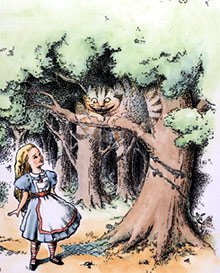Editor’s Note: Teachers and Parents as Partners
Bringing educators into students’ homes builds trust and gets Mom and Dad into the education process.
Your content has been saved!
Go to My Saved Content.
"Would you tell me, please, which way I ought to go from here?"
"That depends a good deal on where you want to get to," saidthe Cat.
"I don't much care where," said Alice.
"Then it doesn't matter which way you go," said the Cat.
-- Lewis Carroll, Alice in Wonderland
We all remember the great teachers we had in school,but what we didn't know was when we were goingto meet that potentially life-changing person. Whenwould lightning strike? This year? Next? Never?
I was lucky enough to have three standouts. First,there was Mr. Miller, my curly-haired, wild-brainedhigh school art teacher, who fired up a class of restless Jersey suburbaniteswith the mind-expanding work of nineteenth-century French avant-gardepainters. Imagine. Then there was my fifth-grade teacher, Mr. Novak,a bearded, soft-spoken man who took a gang of baseball-obsessed boysand refined our passion for the game by showing us its mathematicalunderpinnings. He also loved taking us out of the classroom -- on hikesand canoe trips and to kickball tournaments -- in the days beforeanybody knew there was such a thing as project-based learning.
Finally, my first-grade teacher, Mrs. Smith, made a shy six-year-oldboy who had just moved to the neighborhood feel at home amongtwenty noisy kids who had known each other their whole lives. Plus,she was a hoot.
I think any of us would feel lucky to have had three or four greatteachers in the thirteen years between kindergarten and our senior yearof high school, but, honestly, that's a miserable success rate. Less thanone great teacher out of every four, and we consider ourselves fortunate.
Instead, wouldn't it be great if we had a half-dozen or more memorableteachers in our journey through public education? To guide us, likethe Cheshire Cat led a puzzled Alice, with questions that require self-exploration. It's possible, but it may take an attitudinal change -- not somuch on the part of the teachers, but more on the part of parents, whomust realize that public education is not a one-way street. It's not justschool giving and families receiving. No relationship can survive in sucha unilateral fashion.
Here's a way to shift the equation: At a recent lunch, a few of us cameup with the idea of taking a teacher to dinner. Once a year, invite yourson or daughter's teacher over to your house. Give him or her a look atwhat makes your little person tick.
Some school districts require such contact. In California's state capital,for instance, the Parent/Teacher Home Visit Project has become anintegral part of the Sacramento City Unified School District. For thepast seven years, teachers have gone out on a home visit each semester.Often, the visits are a revelation for the teachers: They'll see the crampedconditions some kids work in, for instance, revealing why a child doesn'talways get homework in on time.
The program's supporters say bringing teachers into students' homeshelps build trust and brings parents into the education process. Moreimportantly, such visits can help build a relationship between home andschool, bridging the gulf that often separates teachers from the low-incomepopulation many serve. Other benefits Sacramento educatorshave seen include increased student attendance, better test scores andclassroom behavior, and decreased vandalism.
The home visits do something else, something subtle but critical.They take the pressure off children to be mediators between teachersand parents. Instead, a relationship can bloom among adults whosecommon interest is educating a child. A casual dinner conversation cansegue into other more substantive discussions about, say, recommendedbooks parents might enjoy with their children, or career goals.
Educators may have expertise in content and pedagogy, but parentshave knowledge of their own children that can be extremely helpful toteachers in meeting the needs of their students. Teachers and parentsmust think of each other as partners in the educational experience. Thatpartnership could develop at a dinner.
Meanwhile, children come away with a new appreciation of a teacherwho took the time to see them in their own home and learn a little bitabout what makes them tick. My guess is that they'll also have a teacherwho will both inspire and lead them. And one they'll remember therest of their life.
Editor in Chief
James Daly